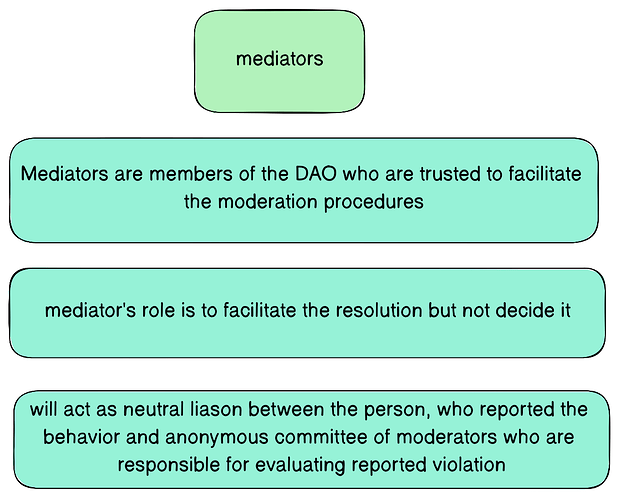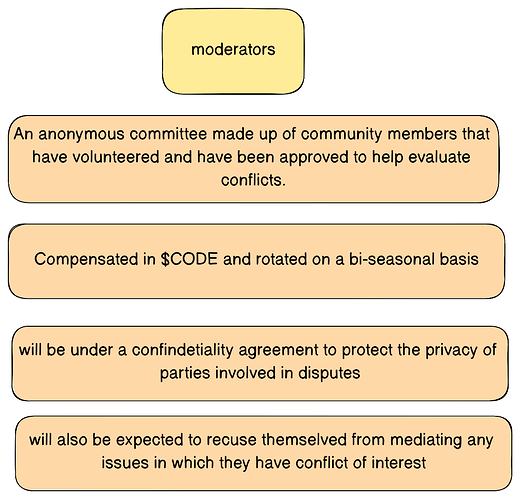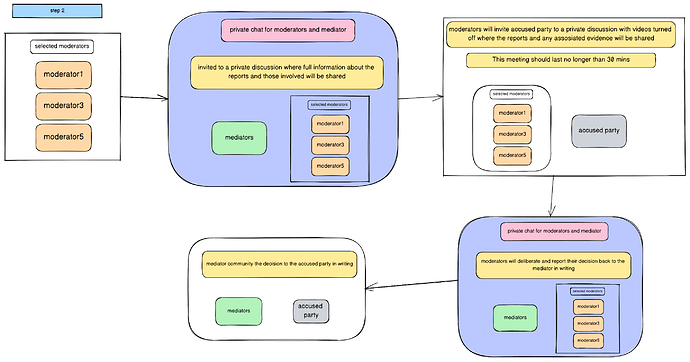Brilliant initiative and thanks a lot for getting it going @kempsterrrr!
First question: how many mediators do we expect to have in a season?
I’m just addressing the Moderation Procedures with this post, otherwise it’s too much to take in in one sitting.
I think Moderation Procedure v1 is a good and robust process that just needs a little bit of v2.
-
One person to speak to the complainant - it’s not always easy to report a bad thing, so one mediator has confidentiality and therefore trust baked in
-
it’s important for mediator to convey that that trust doesn’t equal a ‘result’.
-
One person (the same mediator?) to speak to the accused to reply to ‘the charge’, and I would incorporate the following from Moderation Procedures v2 at this point:
“Whilst these reports would be anonymous, enough context would need to be shared to help the moderators understand the situation better. This may include demographic data, situational/environmental context (i.e. group call, 1-to-1, f-2-f), the context of conversation, past experiences, feelings and any consequences. Any information shared must be okayed by each party, the primary goal here is to protect folks from harm.”
-
A panel of three moderators is a good number of listeners for accused to try and appeal to, and enough wisdom in those three to listen and hopefully come to a fair outcome.
-
The same goes if it comes to an appeal second round - I think it’s the question whether new moderators would be briefed by predecessors from the first round to ensure impartiality. There would always be the outcome of the initial interview with both the accused and accuser, so a lot of information would already be there.
-
I strongly suggest keeping the admins as administrators and not involved in making any decisions at all - it defeats the integrity of the process, I would say.
Just for context: on Moderation Procedures V2 the first part is quite flawed I believe:
showing a signed statement from the complainant to the accused is a recipe for disaster. The accused can fabricate a hell of a lot of lies or half truths based on that. And often the type of person who is a predator, manipulator, abuser will likely be pretty good at this.



